Search Images
Browse Content (p. 1452)
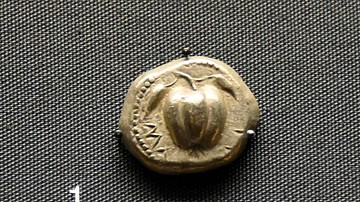
Image
Coin from Melos
Silver stater coin, from Melos, Greece, c. 450 BCE.
Some Greek cities used images for their names, so "readers" did not have to be literate. In Melos, an apple (mēlon) was used.
The British Museum, London.
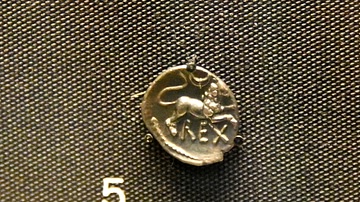
Image
Latin and Celtic on British Coin
Before the Roman invasion of Britain in 43 CE, rulers in the south-east struck coins with Latin inscriptions. Verica is described as REX (king) and COOMI F (son of Commius). Gradually, names usually in Celtic, appeared on coins beyond the...
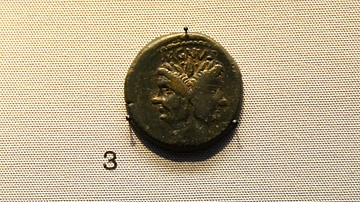
Image
Roman Bronze As Coin
This is one of the first Roman portrait coins. Roman Republican coins did not usually depict living people, although a statue of the politician Sulla appeared on a coin during his lifetime. The son of Pompey the Great adapted a traditional...
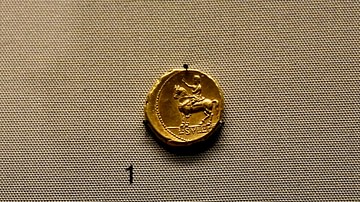
Image
Roman Republic Gold Aureus
This gold aureus is one of the first Roman portrait coins. Roman Republican coins did not usually depict living people, although a statue of the politician Sulla appeared on a coin during his lifetime. The son of Pompey the Great adapted...
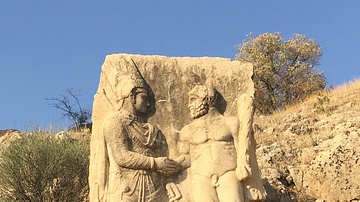
Image
Apollo-Mithras Meets Antiochus I
Found in the ancient ruins of Arsameia, outside Kahta, Turkey, 15 km from the world heritage site of Nemrut Dagi, this stele portrays the meeting of Antiochus I (r. 70 BCE - c. 38 BCE) and Apollo. Antiochus - the ruler of the Commagene kingdom...
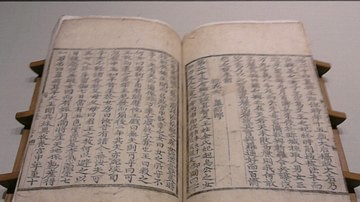
Image
Samguk Yusa
A copy of the Samguk Yusa ('Memorabilia of the Three Kingdoms') by Iryeon, a 13th century CE text which covers the history and legends of Korea's founding right up to the 10th century CE. (Seoul National University Kyujanggak Institute for...
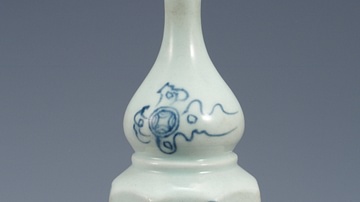
Image
Korean White Porcelain Bottle
A bottle made from the white porcelain manufactured during the Joseon dynasty (1392-1910 CE) of Korea. The design has an auspicious character and orchids. (National Museum of Korea, Seoul, South Korea)
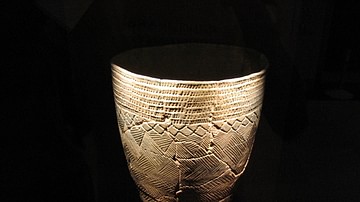
Image
Korean Neolithic Pot
A typical pottery bowl from the Korean Neolithic period with pointed base and simple incised decoration. (National Museum of Korea, Seoul, South Korea)
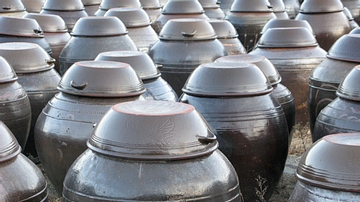
Image
Korean Onggi Jars
Korean onggi lidded-jars, made since ancient times they are used for a multitude of purposes and carry simple decoration.
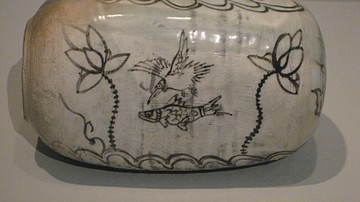
Image
Korean Buncheong Bottle
A buncheong (punchong) bottle decorated with lotus flowers, a bird and fish. Joseon Dynasty, Korea, 15th-16th century CE. (Museum of Oriental Ceramics, Osaka, Japan)